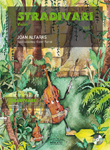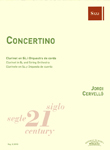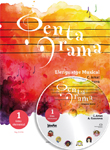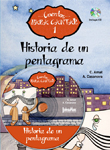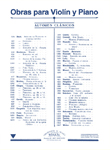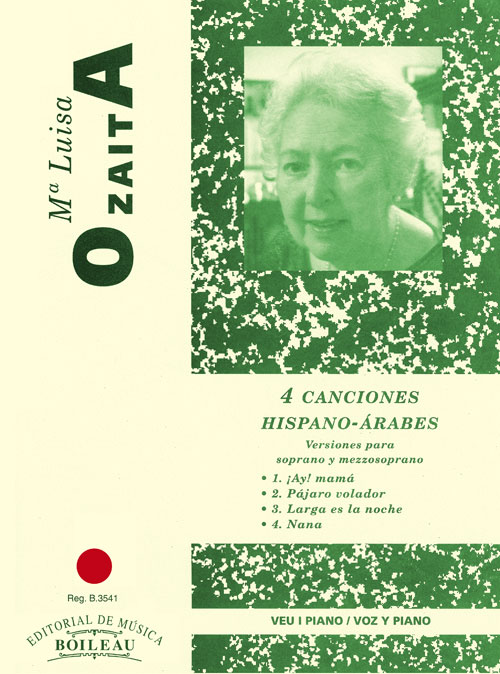WORKS
- Genre
-
Musical education
- Choir
- Counterpoint
- Dictation
- Direction
- Exam study manuals
- General music pedagogy
- Harmony
- Hearing
- Illustrations / Posters
- Improvisation / Sight reading
- Instrument methods
- Instrument pedagogy
- Instrumental study repertoire
- Instrumentation and orquestration
- Musical language
- Solfège
- Templates
- Theory and analysis
-
Incidental music
-
Lined paper
-
Flamenco
-
Religious music
-
Classical / contemporary
-
Modern music
-
Folk music / traditional
-
Musicology
-
Divulgation
-
Games and hobbies
-
Music therapy
-
Children / Youth
-
- Instruments
- Ensemble
- Difficulty level
- Period
- Genre
SOPORTE
Search
Find here: books, scores, composers, digital pieces, cd's
Best-selling works
Our classics

Newsletter
I wish to be informed of the news about your music
We have received your e-mail correctly
Multimedia
4 Canciones Hispano-árabes
Versiones para soprano y mezzosoprano
Voz y Piano
OZAITA, María LuisaOZAITA, María LuisaOZAITA, María LuisaReg.: B.3541
10,30 €
P.V.P. (VAT included 4%)
Add to cart
- Ensemble: Duos: With piano; With voice.
- Genres: Classical / contemporary: Choir.
Folk music / traditional: Popular songbook.
- Lyric author: , ANÓNIMO
- Language: Español / Castellano
- Product format: Partitura
- Difficulty level: Intermediate-advanced
- Period: 2nd half S. XX - XXI
- Publishing house: Editorial Boileau
- No. of pages: 16
- Measure: 31,00 x 23,00 cm
- Lenght: 6' 10"
- ISMN: 979-0-3503-0583-2
- Available in digital: No
- Available for rent: No
The four Spanish-Arab songs owe their title to the fact that the anonymous texts are from AL ANDALUS poetesses who were slaves in the court of Abderramán III in Córdoba. They are written to be interpreted without interruption, each with a different character, although the four form a unit and force the interpreter to use all the resources of variety of color in a very short space of time, which adds difficulty to their interpretation.
From my point of view as an interpreter, the Hispano-Arabic Songs of María Luisa Ozaíta are one of the most difficult "mini-cycles" that I have faced despite its apparent simplicity. This "dangerous simplicity" is formed by a range of colors that come off its suggestive notes and that multiply and mix to form infinite colors that will always be different and that always catch you by surprise. They are four large miniatures.
Marta Knörr and Aurelio Viribay
¡Ay! mamá (1' 10") Pájaro volador (50") Larga es la noche (2') Nana (2' 10")

